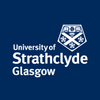CDT in Prosthetics and Orthotics Funding opportunity is provided by the Centre for Doctoral Training (CDT) in prosthetics and orthotics combines expertise from the University of Strathclyde.
The study program is available for UK, EU, EEA, UK and Islands, RUK, International students. Its aim is to create a new generation of highly skilled researchers who are able to deliver the technology and service innovations needed to meet the aspirations of prosthetic and orthotic users.
The University of Strathclyde is Scotland’s third-largest university. It has a diverse range of archives which have been acquired by gift or deposit to support the University’s teaching and research. It is consists of four main faculties categorized based on subjects and academic fields.
Why at the University of Strathclyde? While studying at this university, candidates can get information on careers and related courses. It gives students to bring a range of skills that they have gained outside of their studies and support them in their career aims.
University of Strathclyde Information

 Founded in 1964, University of Strathclyde is a non-profit public higher education institution located in the urban setting of the medium-sized city of Glasgow (population range of 500,000-1,000,000 inhabitants), Scotland. Officially accredited and/or recognized by the Privy Council, University of Strathclyde is a large (uniRank enrollment range: 20,000-24,999 students) coeducational higher education institution. University of Strathclyde offers courses and programs leading to officially recognized higher education degrees such as bachelor degrees in several areas of study. See the uniRank degree levels and areas of study matrix below for further details. International students are welcome to apply for enrollment.
Founded in 1964, University of Strathclyde is a non-profit public higher education institution located in the urban setting of the medium-sized city of Glasgow (population range of 500,000-1,000,000 inhabitants), Scotland. Officially accredited and/or recognized by the Privy Council, University of Strathclyde is a large (uniRank enrollment range: 20,000-24,999 students) coeducational higher education institution. University of Strathclyde offers courses and programs leading to officially recognized higher education degrees such as bachelor degrees in several areas of study. See the uniRank degree levels and areas of study matrix below for further details. International students are welcome to apply for enrollment.
Eligibility Criteria
Eligible Countries: UK, EU, EEA, UK and Islands, RUK, International students can apply for this application
.
Acceptable Course or Subjects: The sponsorship will be awarded in any undergraduate program offered by the university.
Admissible Criteria: Applicants are normally expected to achieve either:
- Applicants must have a minimum of an upper-second class honours degree from an undergraduate course in an appropriate physical or biological science, science, mathematics or engineering OR
- A clinical qualification related to prosthetics, orthotics and the other relevant allied health disciplines, with additional evidence of skills in engineering and physical sciences (e.g. biomechanics, human gait)


 Founded in 1964, University of Strathclyde is a non-profit public higher education institution located in the urban setting of the medium-sized city of Glasgow (population range of 500,000-1,000,000 inhabitants), Scotland. Officially accredited and/or recognized by the Privy Council, University of Strathclyde is a large (uniRank enrollment range: 20,000-24,999 students) coeducational higher education institution. University of Strathclyde offers courses and programs leading to officially recognized higher education degrees such as bachelor degrees in several areas of study. See the uniRank degree levels and areas of study matrix below for further details. International students are welcome to apply for enrollment.
Founded in 1964, University of Strathclyde is a non-profit public higher education institution located in the urban setting of the medium-sized city of Glasgow (population range of 500,000-1,000,000 inhabitants), Scotland. Officially accredited and/or recognized by the Privy Council, University of Strathclyde is a large (uniRank enrollment range: 20,000-24,999 students) coeducational higher education institution. University of Strathclyde offers courses and programs leading to officially recognized higher education degrees such as bachelor degrees in several areas of study. See the uniRank degree levels and areas of study matrix below for further details. International students are welcome to apply for enrollment.